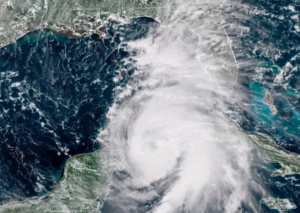 When an earthquake, fire, flood, hurricane or any other disaster strikes there are many employment laws implicated. It is essential that both employer and employee understand their rights and obligations. Workers’ compensation is designed to protect you from almost any type of work-related injury or illness and will pay related medical expenses and benefits, whether it was disaster related or not.
When an earthquake, fire, flood, hurricane or any other disaster strikes there are many employment laws implicated. It is essential that both employer and employee understand their rights and obligations. Workers’ compensation is designed to protect you from almost any type of work-related injury or illness and will pay related medical expenses and benefits, whether it was disaster related or not.
Disruption of Normal Business Activities
A natural disaster can be devastating for any company and lead to a business interruption. This disruption in the daily business activities can sometimes shift workers into different roles. For instance, severe weather may require a secretary take on a new role to help with tree branch removal. This can affect the employer’s work comp policy and classification codes might need to be reassigned.
Health and Safety Hazards
Cleanup work for any type of disaster comes with exceptionally serious health and safety hazards. There is an increased risk of electrocution from power lines and recovery equipment, various biological hazards, dangerous structural damage, chemical spills, a higher chance of carbon monoxide poisoning, issues with waste disposal, and many lifting hazards. There could be issues with air quality control which employers will report to the workers’ comp carrier.
Lost Wages
If your workplace won’t pay for lost time you need to file an unemployment claim with the state as soon as the disaster is declared. You also can able to tap into the Disaster Unemployment Assistance (DUA) program which “is a federal unemployment assistance program that provides compensation for individuals whose employment or self-employment has been lost or interrupted as a direct result of a major disaster, but who are not eligible for regular unemployment insurance (UI)”
When Hurricane Irma hit in 2017, workers in five Georgia counties were eligible for DUA to compensate for income lost. The heavy damages incurred from the storm forced many businesses to close for repairs, leaving multiple employees and employers without any income. The federal DUA program helped bridge that income gap until businesses were ready to resume their daily functions.
The bottom line is if you were injured while on the job when a natural disaster took place, you can file a workers’ comp claim just like any other workplace injury sustained. If you become ill or injured to the extent you can’t work, then you may be eligible for Disability Insurance benefits. We recommend contacting a good workers’ comp attorney so that you know your rights and are getting the benefits in which you are entitled.
